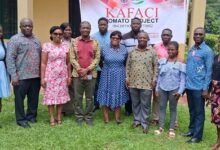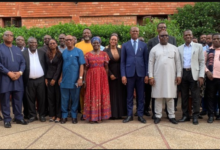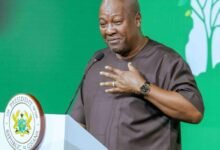Financial National Education Campaign Programme receives positive response – Patience Boham

The Chairperson of the Financial Education Multistakeholder Committee (FEMCOM), Mrs Patience Arko Boham, says it had received positive feedback from the citizenry following the implementation of the Financial National Education Campaign Programme.
The Financial National Education Campaign Programme, a component of the United States (US) $30 million project launched by the Ministry of Finance (MoF) and the World Bank aims to strengthen Ghanaians’ financial capabilities and promote responsible financial behaviours.

Mrs Boham made this known at a dissemination workshop organised by the MoF in Accra yesterday to update stakeholders in the financial sector about progress made so far following the implementation of the campaign.
Present at the workshop were the representatives from the Bank of Ghana (BoG), National Insurance Commission (NIC), Ghana Deposit Protection Commission (GDPC), Ghana Stock Exchange, and other regulatory agencies.
According to Mrs Boham, the town hall meetings, media engagements, and other strategies employed during the campaign helped enlighten the citizenry on various financial-related topics such as insurance, banking and investments.
She explained that her outfit had to engage the World Bank at various stages of the implementation process for inputs as it sponsored the whole programme and also trained spokespersons for the campaign.
The MoF together with FEMCOM, Mrs Boham explained undertook 11 town hall engagements with the target audience being trade associations, vulnerable groups, students, security agencies, among others, and was amazed by the lack of understanding of financial-related issues displayed by the target audience.
“This whole financial journey has been a journey. We started with stakeholder consultations and we had a group we were working with called the FEMCOM. Together with the consultants, we designed the programme, but before that, we went to the field to elicit the views of the citizenry to understand their financial literacy level and that informed the design of the programme and the documents we churned out,” Mrs Boham said.
“We went to the field and we realised that people did not understand simple basic things like next of kin, and redress mechanisms available. So, through financial literacy education, these things came up and we were able to resolve them”, Mrs Boham added.
Speaking on the issue of next of kin, the Chief Manager of Financial Stability Department, BoG, Mr Augustine Amoako Donkor, explained that any individual who was made the next of kin by an account holder in the banking sector was not entitled to the funds of that account holder should he or she pass away.
The consultant for the programme, Mr Charles Yao Mawusi, during his presentation on the programme noted that several educative materials such as brochures, a simplified handbook, as well as jingles had been developed.
However, he explained that online engagement was yet to commence because of the work that had to be done on the website to be used.
Mr Mawusi noted that they were able to reach out to two million people with its messages, but explained that with adequate resources the programme could reach more people to achieve its objectives.
BY BENJAMIN ARCTON-TETTEY & PRECIOUS NYARKO BOAKYE







